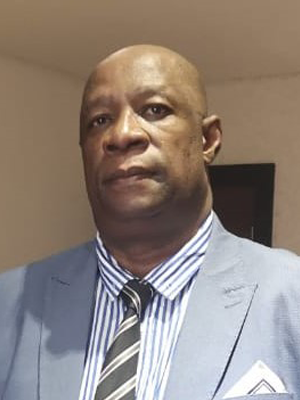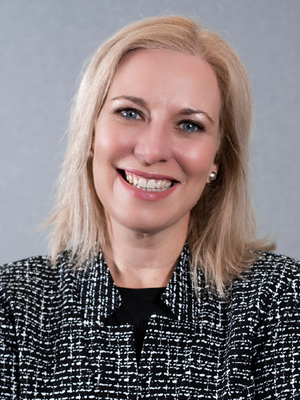
Prof Menno van Zaanen
The Digital Humanities Revolution in South Africa: The Journey from Beginning to Beyond (read more)
The Digital Humanities Revolution in South Africa: The Journey from Beginning to Beyond
Prof Menno van Zaanen
The research area of Digital Humanities blends the field of Humanities with digital techniques. Due to the incorporation of computational aspects, this novel research area allows researchers to ask and answer novel questions relevant to the field of Humanities. Digital Humanities is still a relatively new field in South Africa. The South African Centre for Digital Language Resources (SADiLaR) works on increasing Digital Humanities research capacity in South Africa by organising a wide variety of training activities, which are incorporated into the ESCALATOR program. Currently, the field of Digital Humanities is growing rapidly. The future of Digital Humanities is now.

Prof Gilbert Motsaathebe
Negotiating knowledge boundaries and dual citizenship: A communication pracademic’s diachronic, pedagogical and futurological exploration (read more)
Negotiating knowledge boundaries and dual citizenship: A communication pracademic’s diachronic, pedagogical and futurological exploration
Prof Gilbert Motsaathebe
The impetus of this lecture draws from my professional experience, which straddles four continents and six countries. At the moment, there is a lack of research examining the issue of pracademia from a reflective stance. This is intriguing given the value that pracademics bring to the contexts they engage with. I therefore closely examine my own involvement with industry and academia, which I see as different forms of knowledge boundaries. Doing so means putting oneself in a certain relationship to the two dissimilar but interrelated worlds. It also means “turning oneself into a subject,” à la Foucault. My aim therefore is to reflect on my own thinking while at the same time conceptualising pracademia as a critical and self-referential lens. I provide a conceptual framework embracing two concepts, namely pracademic and reflective practice, which I use to reflexively access and assess my professional experience in varied contexts spanning three decades.

Prof Ian Bekker
The word made flesh: reflections on phonetics and the incarnate word (read more)
The word made flesh: reflections on phonetics and the incarnate word
Prof Ian Bekker
Modern phonetics lies on the interface of a number of different paradigms. As a science (studying the mechanics of articulation and speech sound) it lies within the positivist empirical tradition, with an emphasis on generalisation. In terms of its close relationship with its disciplinary neighbour, phonology, it has to also preoccupy itself with what we could call a formal science, in other words, with the abstract (computational) knowledge that we possess about the sound systems of our languages. Lastly, however – and in terms of its close relationship with sociolinguistics – it aligns itself with the humanities. Here the emphasis is on social meaning and often on understanding the particular individual case. This lecture provides more information on the above, as well as on outlining some of its intriguing philosophical (and even theological) implications

Prof Bernard Nchindila
Reframing the scholarship of a colonial tongue and reading literacy in a fast-changing world (read more)
Reframing the scholarship of a colonial tongue and reading literacy in a fast-changing world
Prof Bernard Nchindila
Past English literary scholarship on the nexus between colonial languages and literacy has been framed as the violent control and subjugation of the physical colonies. Stock is taken of that rich scholarship, but this lecture focuses on the recent linguistic status of English as a colonial tongue. Despite the fact that it was the channel of imperial literacy practices in the former colonies, English is now the world’s most spoken language, reframing a “colony” to include population territories that were not physically colonised by Britain. Lessons are offered for the future contours of the scholarship on linguistic digital affordances, assessments, language and literacy instruction.

Prof Langa Khumalo
I speak, therefore I am – language, education, and the future (read more)
I speak, therefore I am – language, education, and the future
Prof Langa Khumalo
Language is important because it defines us as human beings and enables us to accomplish complicated tasks. Colonialism had a devastating effect on African languages. African languages were proscribed in the colonial schooling system and ostracised as vernaculars incapable of carrying and conveying any scientific knowledge. I reflect on language in the broad African context and discuss language resources as important precursors to African language development. I highlight the critical challenges that confront the development of language resources for African languages, and conclude that the development of African languages can henceforth be enhanced using the affordances of artificial intelligence.

Prof Lida Holtzhausen
Building bridges: Uniting through integrated brand communication (read more)
Building bridges: Uniting through integrated brand communication
Prof Lida Holtzhausen
In an era characterised by rapid globalisation, technological advancements and evolving consumer preferences, the significance of integrated brand communication cannot be overstated. Integrated brand communication plays a central role in uniting businesses and consumers through cohesive, resonant and authentic brand narratives. By synthesising various communication channels, strategies and tools, integrated brand communication creates immersive brand experiences that engage, inspire and unite diverse audiences. From traditional advertising to digital media, experiential marketing and corporate social responsibility, these strategies leverage multiple touchpoints to build authentic connections, drive brand advocacy and cultivate a sense of community among stakeholders. Overall, integrated brand communication is essential for connecting brands with consumers, facilitating meaningful interactions and promoting resilience and adaptability in the communication industry. Just as bridges are vital infrastructure for connecting communities and facilitating movement, integrated brand communication is crucial for connecting brands with their audiences and fostering meaningful interactions.

Prof Dumi Moyo
Moving the centre of media and communicative power in the digital age: promise, pitfalls and perspective (read more)
Moving the centre of media and communicative power in the digital age: promise, pitfalls and perspective
Prof Dumi Moyo
The rapid technological change and other developments in the media and communications industry over the past few decades promised a new era of more plural and diverse media systems that empower citizens everywhere to participate in socio-political and economic discourses in hitherto unimaginable ways. However, these changes have also come with new challenges that threaten the fundamental role that media play in society and put to question the future of both “the media” as we know them, and media and communication as a field of study. This digital revolution has, in many ways, transformed a centuries-old industry and forced many traditional media outlets to adopt hybrid models that blend the digital and the analogue or face certain collapse. With advertisers migrating to online platforms in pursuit of readers/audiences, the future of traditional media is hanging in the balance. Through a critical reflection on my own research – straddling both traditional mass media and the emergent social/digital media forms – I highlight in this lecture the inevitable relocation of the centre of media and communicative power and critically reflect on its implications for “the media” as an institution that underpins democracy, and for the field of media and communication studies. I argue that with increased digitalisation of social life and an overreliance on online platforms for information and entertainment, media and communication scholars need to (continue to) rethink their theoretical and methodological approaches to adequately capture the new centres of citizen engagement, information and entertainment. The lecture emphasises the need for policies and regulations that seek to retain the best of what traditional/legacy media stood for – alongside or hybridised with the new and online media forms.
